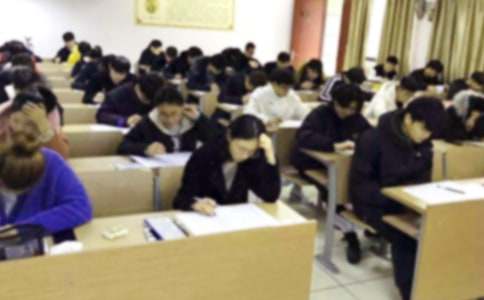专八英语考试阅读精选试题及答案
It is not enough to be industrious, so are the ants. What are you industrious for?以下是小编为大家搜索整理的专八英语考试阅读精选试题及答案,希望能给大家带来帮助!更多精彩内容请及时关注我们应届毕业生考试网!

On a nondescript block south of New York's Union Square’ up a dreary staircase and through a black-barred gate, there is a long, narrow room that might be mistaken for a very small museum of literary counterculture. On one wall hangs two rows of iconic posters:a print of Che Guevara's proud head; a photograph of the authors Jean Genet, William S. Burroughs, and Allen Ginsberg marching at the 1968 Democratic National Convention ;a portrait of Bobby Kennedy. Ixiose-leaf binders of correspondence with groundbreaking authors line floor-to-ceiling bookshelves. Beside the bookcases, Samuel Beckett peers out of a black-and-white photograph with a fierce crow's gaze. Next to him in the picture stands a shorter, milder-looking man named Barney Rosset.
Rosset's publishing house, Grove Press, was a tiny company operating out of the ground floor of Rosset's brownstone when it published an obscure play called Waiting for Godot in 1954. By the time Beckett had won the Nobel Prize in 1969 ’ Grove had become a force that challenged and changed literature and American culture in deep and lasting ways. Its impact is still evident——from the Che Guevara posters adorning college dorms to the canonical status of the house's once controversial authors. Rosset is less well known— but late in his life he is achieving some wider recognition.
"Hie story of Rossel's life is essentially one of creative destruction. He found writers who wanted to break new paths, and then he picked up a sledge-hammer to help ihem whale away at the existing order.
Rosset saw many crises. He or his company was forever going broke, being attacked, breaking the law. In his legal battles, Rosset made his most enduring impact. Before Rosset challenged federal and slate obscenity laws, censorship was an accepted feature of publishing. His victories in high courts helped to change that. Rosset believed that it was impossible to represent life in the streets and in the dark recesses of the heart and mind honestly without using language that in ihe mid-20th century was considered “ obscene"— and therefore illegal to sell or mail. To a significant extent, the books he published convinced others that this was true.
Rosset wasn't the only publisher who took risks, but he was one of the most visible and uncompromising. Not everything he published was high-minded. Some of it aimed below the belt, and he was uncompromising about that too. His stubbornness made his achievements possible, bul it also helped to undo him. At the end of the 60s, Grove moved into fancy offices, into film, and, to some extent, away from books. The repression of the 50s and freewheeling openness of the 60s were over, and other houses, now free from fear of censorship, took more chances. The left splintered. The feminist movemenl attacked him. Grove began to drift. But Rosset, as always, kept doing what he wanted, everything else be damned.
1.Which of the following statements contains a metaphor? [A]…with a fierce crow's gaze. (Paragraph One) [B] He or his company was forever going broke ...(Paragraph Four)
[C] Some of it aimed below the belt ... (Paragraph Five)
[D] "Die feminist movement attacked him. (Paragraph Five)
2. What does "creative deBtmclion" (Paragraph Three) mean?
[A] Rosset caused various types of damage.
[B] Rosset broke rules to bring about good changes.
[C] Rosset picked out creative writer to destroy.
[D] Rosset needed writers of powerful influence.
3. According to the passage, the biggest achievement Rosset has made is
[A] publishing Waiting for Godot.
[B] defeating all the crisis.
[C] winning the case of censorship.
[D] producing successful films.
4. Which of the following can best describe Barney Rosset?
[A] He's the only publisher who dares to take risks.
[B] He's an uncompromising man who favors obscenity books. [C] He's a stubborn man who doesn't care others' opinion. [D] He's a Nobel-prize winning American publisher.
5. Tlie purpose of the writer in writing this passage is to
[A] describe the changes Rosset bring to American publishing.
[B] introduce Bamey Rosset, an American publisher.
[C] show the development of Grove Press.
[D] analyze what helps Rosset to be successful.
iconic a.圣像的,偶像的
nondescript a.无明显,特征而不易分类的 obscenity n.下流recess n.深处
repression n.压抑,压制, sledge-hammer 长柄大锤 splinter v.分裂 whale away 猛打
答案解析
1. [A]修辞格题。原文把贝克特的眼睛比喻成了牛眼,属于隐喻“用法。因iS案为[A]。[B]所在句意为“他和他的公司始终处于玻产、受攻击和违法的处境。" 没有隐喻的用法,故排除;[C]中的表达方式below the belt字面意思是“腰带以下”,本文中指的是与性有关的内容,或是不符合规则的行为,所以此处为委婉语,不是隐喻;[D]意为“妇女运动者攻击他",不是隐喻,故排除。
2. [B:语义理解题。由第三段第二句可知,罗塞特首先寻找那些想要有所突破的作家,然后帮助他们一起打破现有的秩序——这是在进行破坏。但是在破坏的同时,他们也会重新创造出新的规则与艺术作品。因此答案为[B]“罗塞特打破规则,带来好的变革"。
3. [C]事实细节题。第四段第二句明确指出“在他与法律的抗争中,罗塞特的影响力最为久远"。接下来,文章讲述的正是罗塞特的努力,政府对于出版业的检查制度才不再那么严格。因此,罗塞特最大的成就是[C]“赢了与检查制度有关的案子”。
4. [C]事实细节题。第五段第一句中就用到了uncompromising—词,最后一句也说,Rosset始终坚持做自己想做的事情。因此,[C] “他非常固执,不在意别人的看法”为正确答案。由第五段第一句可知,罗塞特并不是唯一敢于冒险的出版家.故排除[A];虽然第四段说他赢得了关于审查淫秽作品的案子,但他是为了能够出版更多深刻揭露社会的作品,并不能说[B] “他特别喜欢淫秽书籍",故排除;第二段中说获得诺贝尔奖的是贝克特,而不是罗塞特,故排除[D]。
5. [B]主旨大意题。文章以罗塞特的办公室引出了这位出版家,在第二段中讲述了他对于美国的重要影响,在接下来的几段中描写了他的成就及性格。因此,本文的主题为[B]“介绍美国出版家一巴尼罗赛特”。
【专八英语考试阅读试题及答案】相关文章:
专八英语考试阅读理解试题附答案10-17
2017年专八英语考试阅读试题及答案详解09-14
专八英语考试阅读理解试题11-04
英语考试阅读精选试题及答案09-11
2017年专八英语考试改错试题附答案08-13
2017年专八英语考试阅读试题提分训练09-01
英语专八中级阅读试题及答案06-22
专八英语考试中级阅读练习题及答案解析07-14
专八英语考试阅读训练指导09-17